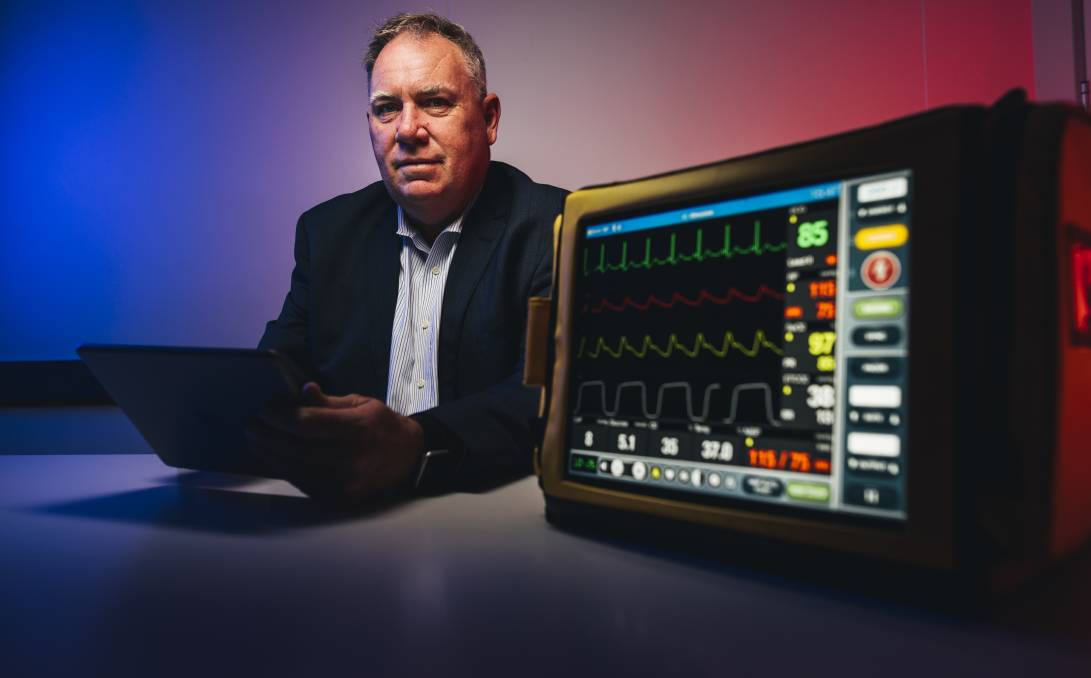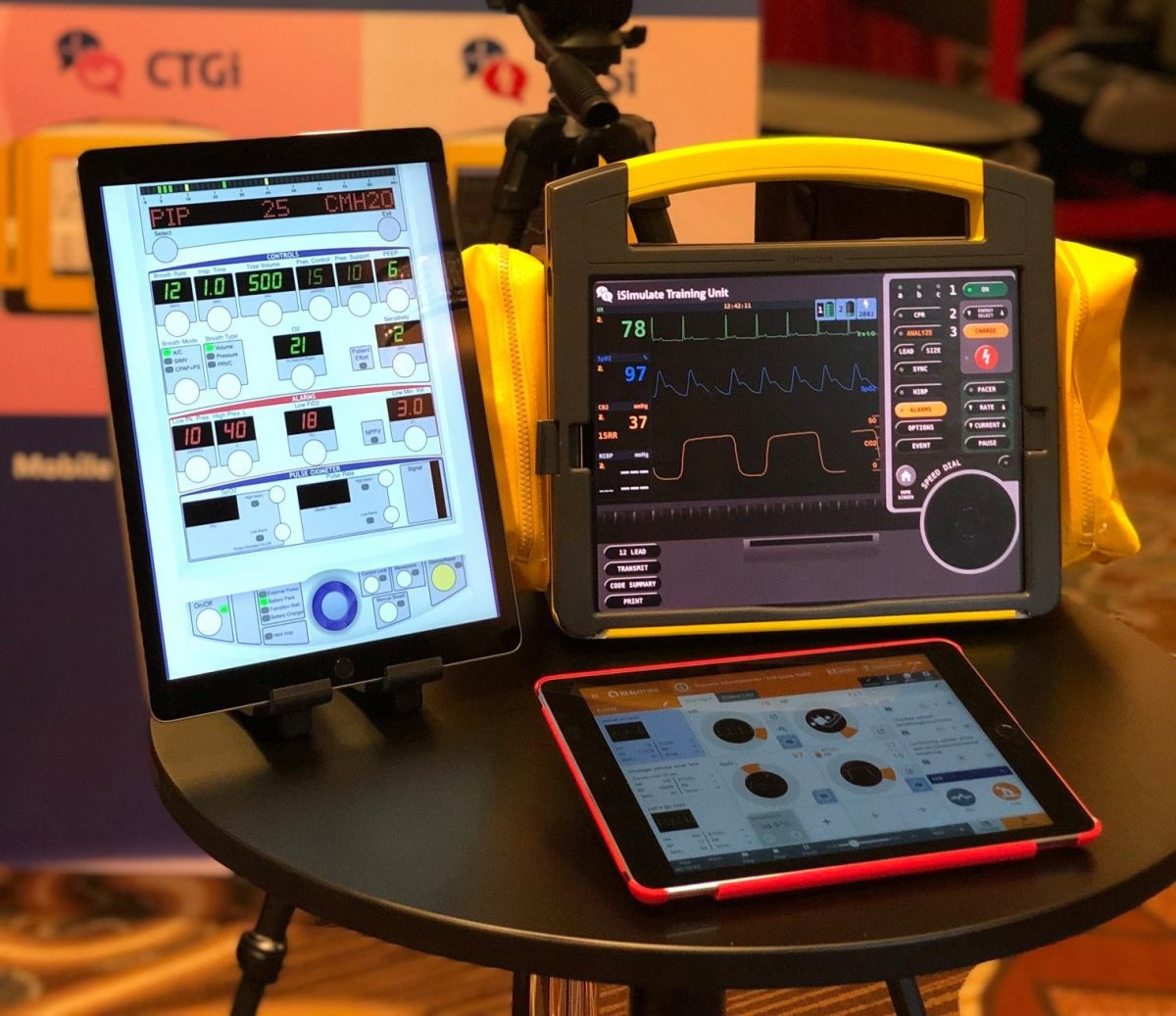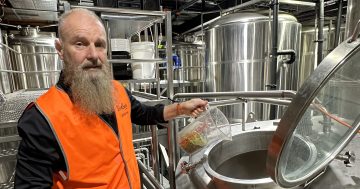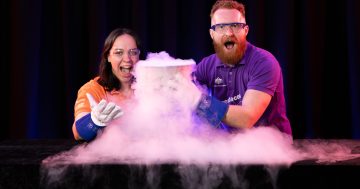
Peter Mckie, founder of iSimulate, will be offering business tips at CBRIN’s ‘Billion-Dollar Panel’. Photo: Canberra Innovation Network (CBRIN).
Peter Mckie was volunteering at hospitals around Australia in March 2011 when he realised there was a problem.
“I was teaching advanced life-support to doctors, nurses and paramedics and the trouble is, the cost of actually doing this is quite high,” he says.
“You have to buy a very sophisticated manekin and then on top of that, a real hospital defibrillator. All up, you would spend close to $50,000, if not more. And that’s just for one. You needed four of these pairs to run the training courses.”
Peter grew up in Canberra, before working as an intensive-care paramedic and establishing Parasol EMT in Canberra, a healthcare training company with offices throughout Australia. He was also chairman of the ACT Australian Resuscitation Council for 20 years, regularly teaching advanced life-support courses as a volunteer.
He is now head of strategy and innovation at the solution, iSimulate.
Digital tablets were still in their infancy in 2011, but it dawned on Peter these large and expensive training setups could be condensed into screens for a lot less. During one of his training sessions, he met a doctor who was having similar thoughts.

The iSimulate REALTi 360. Photo: iSimulate, Facebook.
“By the end of that weekend, Dr Anthony Lewis and I were in business together and it was all guns blazing.”
iSimulate is “clinical education technology” and their flagship REALITi 360 model takes the form of two iPads, a yellow bag and some very clever software to simulate patient monitors and defibrillators.
“Essentially, it looks like a real monitor defibrillator, but with a plastic case, two iPads and bags on the side for all the bits and pieces,” he says.
They launched the first version at the International Meeting of Simulation in Healthcare in San Diego and were immediately overwhelmed with interest.
“For three days, we did not stop demonstrating the concept we had come up with,” Peter says.
It spread out from Canberra like wildfire, and more than 10,000 units can now be found in “everything from the Berlin Fire Brigade to the University of London”. Meanwhile, in Australia, they’re in “every major medical institution without exception”.
“Up to 95 per cent of my business here in Australia is with existing clients,” he says.
The future is bright too. There are currently three models available, including the initial patient simulator, fetal heart rate monitor and a smartphone app containing various point-of-care technologies.

iSimulate popup. Photo: iSimulate, Facebook.
“Now that the system is down pat, expansion is just a matter of building an ‘ecosystem’ of features around it,” he says.
Peter will now be sharing his success story, as well as the painful lessons he learned along the way, at this month’s ‘Billion Dollar Panel’ event hosted by the Canberra Innovation Network (CBRIN).
The Billion Dollar Panel series features successful entrepreneurs, founders, and innovators who have experienced the challenging journey of entrepreneurship firsthand. These people pass on their wisdom in a fireside-style chat with a member of the CBRIN community.
Peter first came across CBRIN at the Telstra Business Awards in 2017, where he took home the award for the micro-business category.
“A director got in touch with me and said we’d really appreciate if I could come in and help other people develop their business ideas,” he says.
He’ll be talking through the initial foundation-laying stages to a business, and tips to avoid common pitfalls.
“I’ve had some great ideas over the years that have turned out to be absolute failures,” he says. “And that’s because it was either the wrong time, the wrong place, or the wrong product.
“Every case is different, but every business has a sweet spot. It’s just a matter of finding it.”
The Billion Dollar Panel with iSimulate co-founder Peter Mckie will be held at Canberra Innovation Network (CBRIN) at Level 5, 1 Moore Street on Tuesday, 20 September, 4 to 5:30 pm. Register for free online.





















